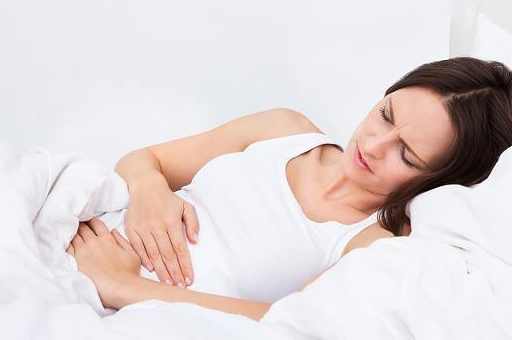Women who are preparing for pregnancy may find themselves bleeding during ovulation and become very nervous, thinking they have contracted some terrible gynecological disease. In reality, there is no need to be overly worried about bleeding during ovulation. If there are no other symptoms present during ovulation bleeding, treatment is generally not necessary. Ovulation bleeding refers to the occurrence of bleeding between two menstrual cycles. The amount of bleeding during this time is not usually significant and may have recurrent symptoms. Although termed “bleeding,” it may not necessarily be bright red and could be a coffee-colored secretion. All of these are normal phenomena, and the bleeding may stop after about two days, ending within a week.
In addition to abdominal discomfort, sometimes abdominal pain may occur during ovulation, but it usually subsides quickly. For some, it may last one to two hours, and in some cases, abdominal discomfort may persist throughout the episode. Despite experiencing bleeding during ovulation, there is no need to be overly concerned. It is essential to be cautious during the reproductive period. The reasons for bleeding during ovulation vary among individuals due to the condition of their uterus. Besides bleeding and abdominal discomfort, there may also be a decrease in appetite, a noticeable decline in fertility efficiency, increased cervical mucus, which are all normal occurrences. Ovulation bleeding primarily results from the division of mature cells. Because the body’s estrogen levels cannot sustain further growth of the endometrium, shedding of the endometrium occurs, leading to ovulation bleeding.
The cause of ovulation bleeding in women may be an excessive secretion of estrogen, which can lead to the bleeding. However, if there was no ovulation bleeding from the beginning and sudden ovulation bleeding occurs at a specific time, and may be accompanied by other gynecological issues, timely medical examination is necessary to check if there are underlying gynecological diseases causing the delay. These gynecological diseases include endometrial tumors, endometrial polyps, etc., which occur due to hormone secretion fluctuations and significant changes in estrogen levels, leading to bleeding symptoms. In cases where a woman also has endometritis or excessive bleeding, the condition may be more severe. Therefore, once a woman notices ovulation bleeding, various diseases may exist.
Maintaining a positive mood not only benefits overall health but also positively impacts coping with diseases. Symptoms such as breast tenderness and abdominal discomfort can be alleviated. Treating ovulation bleeding is similar to taking care of menstrual periods; it is vital to stay warm and change breathable underwear frequently. Additionally, it is advised to drink plenty of warm water and reduce the consumption of raw foods to prevent direct irritation to the body.


